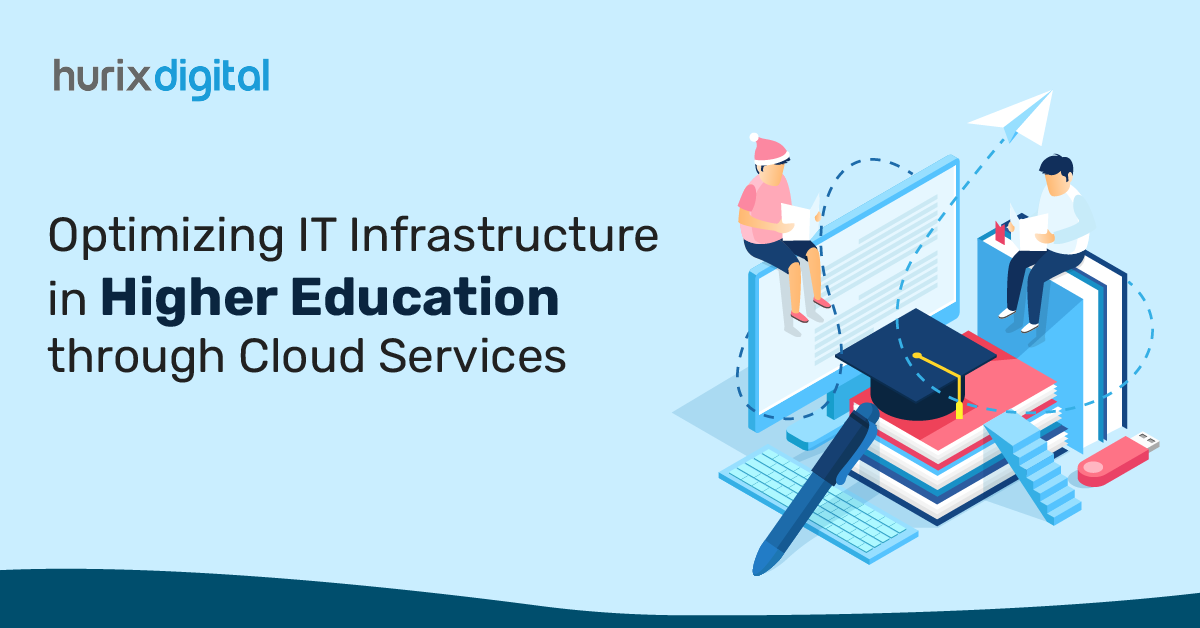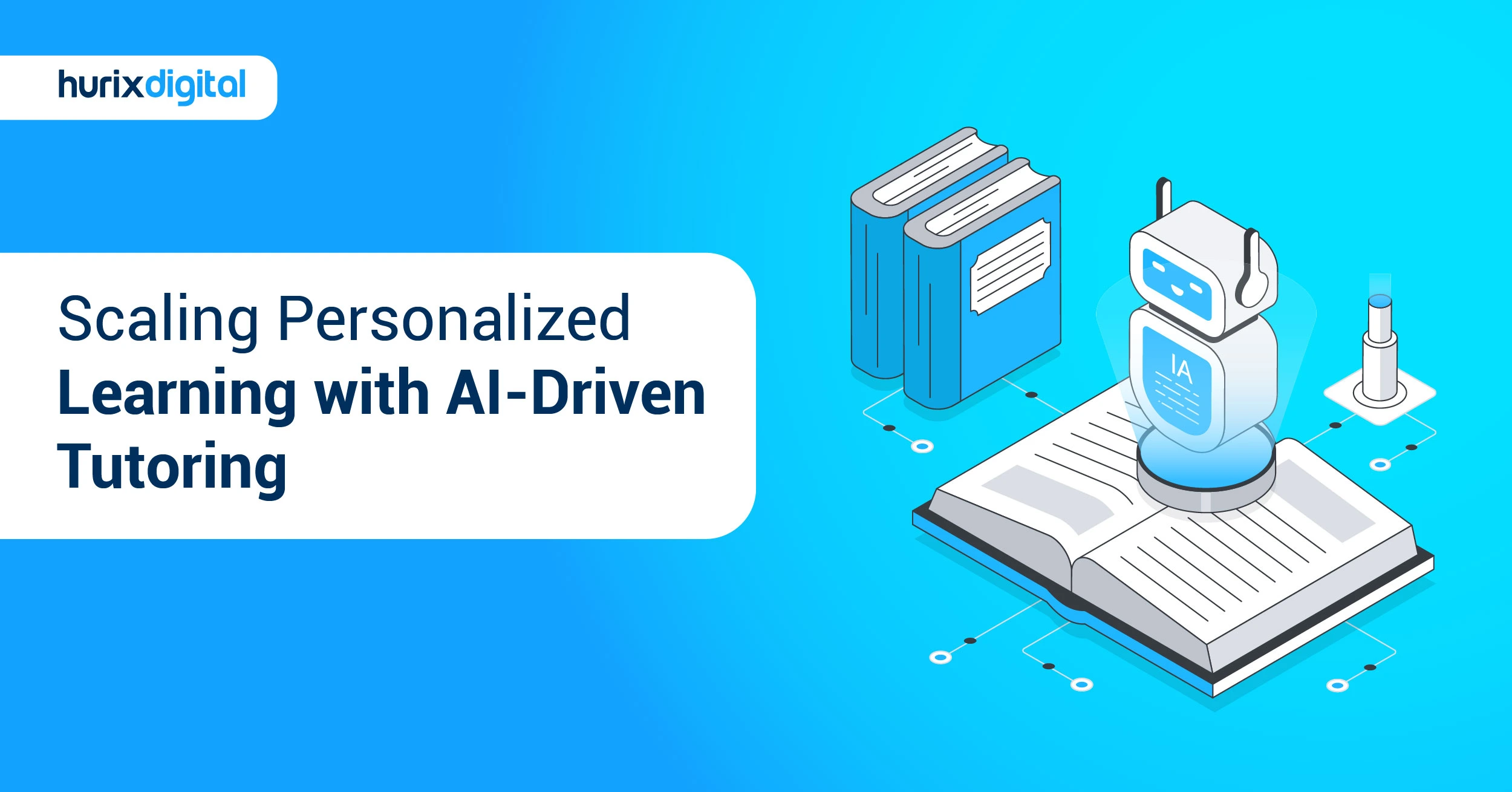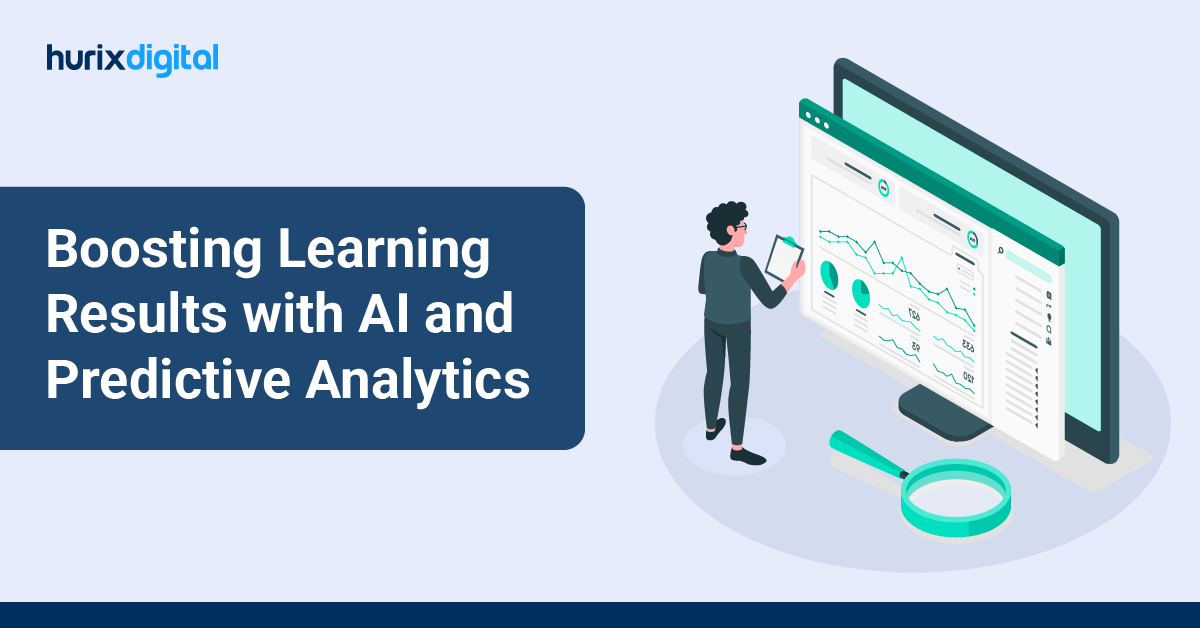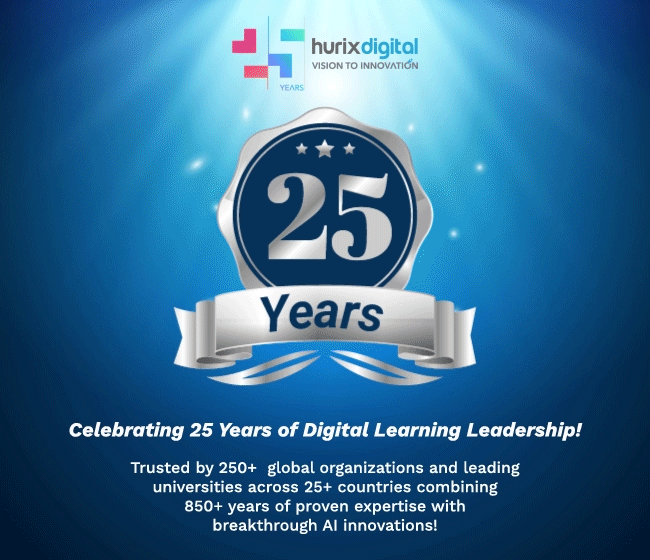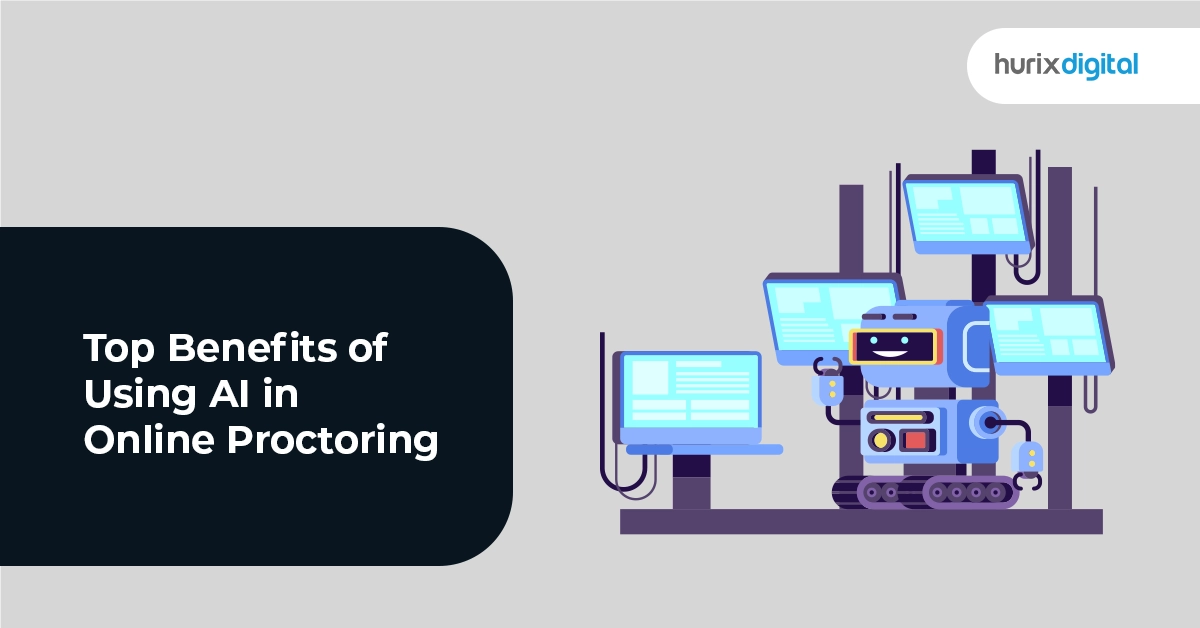
Top Benefits of Using AI in Online Proctoring
Summarize with:
As global education becomes increasingly digital, maintaining the integrity of tests and assessments seems increasingly challenging. This has led to online proctoring, coupled with the use of AI in online education to act as virtual invigilators.
These tools, designed to protect academic integrity during examinations, come equipped with algorithms capable of scrutinizing every student’s action. This, of course, raises significant concerns about student privacy.
In this article, we explore the complex interplay between these standards and the essential balancing act that lies ahead for educators and Edutech entrepreneurs. Read on!
Table of Contents:
- The Rise of AI In Online Proctoring: Challenges and Concerns
- Benefits of AI Proctoring for Educational Institutions
- How Does AI Proctoring Work?
- Balancing Integrity and Privacy
- Final Words
The Rise of AI In Online Proctoring: Challenges and Concerns
Here’s a quick glimpse of the key issues and debates surrounding the rise of AI in online proctoring:
1. The Case For Maintaining Academic Integrity
During the pandemic, when educational institutions were forced to shift to remote learning overnight, the biggest challenge was administering tests.
According to numerous reports, cheating was rampant during those two years, and institutions had no choice but to put up with it.
Cheating on tests doesn’t undermine the value of grades and credentials; it is downright unjust to students who work hard to study. Institutions have a responsibility to protect the interests of these students.
AI in online education has not only proven to be a valuable tool in addressing this challenge but has also introduced new standards of vigilance and fairness. This enhanced level of scrutiny helps to ensure that all students are held to the same standards of honesty and effort.
2. The Privacy Concerns
Even if it seems obvious that such a system is beneficial, not everyone agrees, particularly when it comes to student privacy.
Students all across the world have complained about being uncomfortable having to give the software complete access to their computer’s files and hardware.
In addition, there are questions about what exactly is being tracked and recorded, as well as how information will be shared, stored, and used.
3. Technological & Ethical Limitations
The technology isn’t infallible. AI proctoring systems have occasionally falsely accused students of cheating, which has caused needless anxiety and accusations.
Students from varied backgrounds may find this especially troubling because certain systems have been criticized for using facial recognition software that exhibits racial bias.
Also Read: Proctoring in the Digital e-Learning Space: How AI Can Help?
Benefits of AI Proctoring for Educational Institutions
Here are the top benefits of AI proctoring for educational institutions:
1. Enhanced Security
Artificial intelligence (AI) systems are capable of keeping an eye on a student’s screen, webcam, and microphone to spot questionable behavior like glancing away from the screen or utilizing unapproved equipment.
By establishing a controlled exam setting akin to conventional in-person exams, continuous monitoring might discourage cheating.
2. Scalability
Large numbers of students can be accommodated simultaneously via AI proctoring solutions, which enables universities to administer tests for online courses or in emergencies like the COVID-19 pandemic.
3. Consistency and Objectivity
Artificial intelligence in online learning can offer impartial, continuous monitoring. All students are held to the same standards by automated systems, which lessens the possibility of biased assessments from human proctors.
4. Cost-Effectiveness
Even though AI proctoring systems need an upfront investment, in the long run, they may be less expensive than employing human proctors—particularly for extensive exams.
How Does AI Proctoring Work?
AI proctoring uses facial and voice recognition to monitor test-takers. It ensures exam integrity and reduces the need for human proctors.
Here are the major types of AI proctoring:
- Offline Proctoring: Exam sessions are recorded and reviewed later for any irregularities.
- Auto Proctoring: Automated systems monitor and flag suspicious behavior in real time without human intervention.
- Live Proctoring: Human proctors observe the exam session live, supported by AI tools to enhance monitoring.
- Record & Analysis Proctoring: Exam sessions are recorded and analyzed post-exam using AI to detect any cheating.
- Image Proctoring: Captures images at intervals to monitor test-takers’ behavior and surroundings.
Its work includes the following aspects:
- Facial Recognition: Utilizes machine learning to verify examinees’ identities, ensuring the correct individual is taking the test.
- Behavioral Biometrics: It analyzes typing patterns and keystroke dynamics to confirm identity.
- Browser Lockdown: Restricts access to unauthorized resources during the exam.
- Screen Monitoring and Audio Analysis: Monitors every pixel and sound wave for signs of cheating.
- Pattern Recognition: Detects specific cheating behaviors that may go unnoticed by humans.
- Real-Time Supervision: Enables live observation of exam sessions, with instant alerts and comprehensive reports on any suspicious behavior.
- Post-Exam Analysis: Recorded sessions allow for detailed post-exam reviews using natural language processing to evaluate written responses.
- Voice Recognition: Identifies speech patterns and background noise to prevent cheating.
- Adaptability: AI’s continuous learning from data and feedback ensures evolving security measures, maintaining accuracy and efficiency in detecting cheating.
- Object Recognition and Eye Movement Detection: Monitors for unauthorized items and suspicious eye movements.
- Hardware Control: Manages system hardware like webcams and microphones to observe the examinee’s environment and behavior thoroughly.
AI takes online digital education a step further. In addition to just monitoring test takers, it makes use of complex algorithms capable of analyzing video feeds, audio, and even keystroke patterns to flag potential cheating during tests.
Balancing Integrity and Privacy
To strike a balance between maintaining academic integrity and protecting student privacy, educational institutions can consider the following approaches:
1. Transparent Policies
Institutions should be transparent about the data they acquire, how they utilize and safeguard it, and how AI proctoring systems operate.
It is essential to have students’ informed consent to make sure they are aware of and comfortable with the terms of AI proctoring.
2. Data Security Measures
Implement robust security protocols to protect student data, including encryption, secure storage, and strict access controls. Ensure compliance with relevant data protection regulations, such as GDPR or CCPA, to safeguard students’ personal information.
To safeguard student data, put strong security measures in place. These should include encryption, secure storage, and stringent access limits. Maintain adherence to pertinent data protection laws, including the GDPR or CCPA, to preserve the privacy of students.
3. Alternative Assessment Methods
Examine alternate forms of assessment, such as open-book exams, project-based assessments, or oral exams, that could lessen the requirement for extensive proctoring.
To help students develop an honest and accountable culture, think about implementing honor codes and academic integrity pledges.
4. Support and Accommodations
Offer assistance to students who would be disproportionately impacted by AI proctoring, like those who don’t have access to the required technology or who have disabilities. Make careful to provide modifications or different plans for pupils with legitimate privacy concerns or technical issues.
Also Read: Why Do Educational Institutions Need Online Proctoring?
Final Words
Both sides of the ongoing discussion about AI in online proctoring have good points. While upholding academic standards is crucial, we also need to look out for the safety and privacy of our kids.
Maintaining this equilibrium will be essential as we traverse the increasingly digital landscape of education in the future.
If you’re looking for digital learning solutions for your institution, consider teaming up with Hurix Digital. With extensive backgrounds in proctoring, assessments, and learning management, we guarantee a thorough and considerate approach to incorporating technology into your teaching procedures.
Reach out to us for further info!
Summarize with:

Senior Vice President
A Business Development professional with >20 years of experience with strong capability to sell new solutions and develop new markets from scratch. New Market Entry Specialist with experience working in the largest emerging markets. Exceptional experience in conceptualizing, ideating and selling new learning technologies like VR AR, etc. across multiple industry verticals.
 We’re live! Explore the all-new
We’re live! Explore the all-new 

